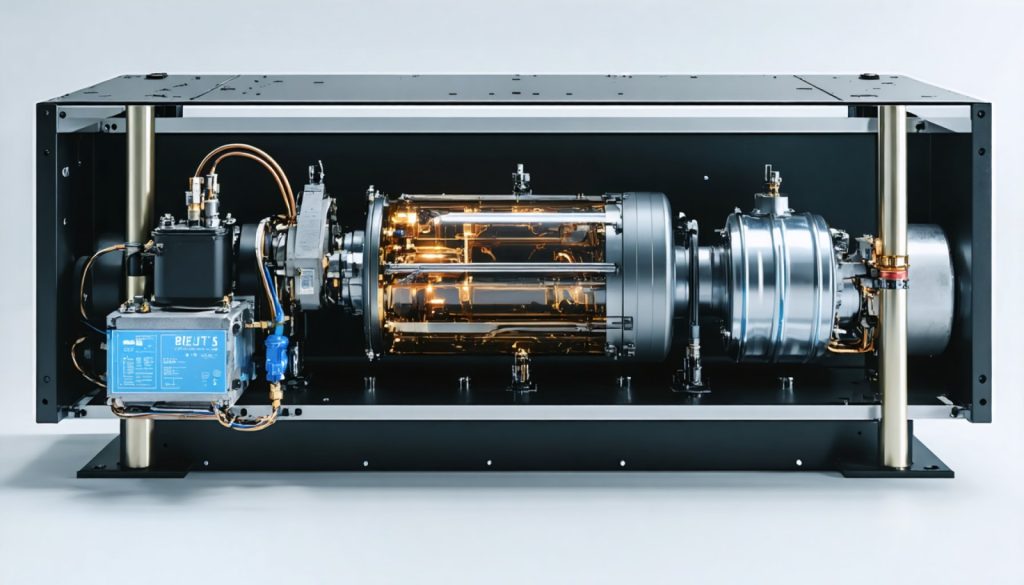- Altilium is pioneering the recycling of old EV batteries into powerful new cells using their EcoCathode process.
- Recycled battery cells offer comparable performance to those made from traditional mining methods, showcasing the potential of sustainable technology.
- The EcoCathode process, developed in Devon, recovers over 95% of critical metals, reducing reliance on imported raw materials and supporting a low-carbon economy.
- Trials at the UK Battery Industrialisation Centre demonstrate seamless integration of EcoCathode materials in standard manufacturing, ensuring robust electric vehicle production.
- This innovation promotes the shift towards a circular economy, highlighting the viability of high-quality, recycled battery cells.
- Altilium’s advancements could decrease the UK’s dependence on foreign mined materials, bolstering a market for recycled batteries and enhancing sustainability.
In a bold stride towards a sustainable future, Altilium, the UK-based clean technology group, is redefining the narrative on recycling and reuse. At the cutting-edge UK Battery Industrialisation Centre (UKBIC), nestled in Coventry, an electrifying experiment unfolds. Utilizing what was once considered waste—old EV batteries—they now craft powerful new cells with their trademarked EcoCathode.
Imagine a world where discarded batteries are not an environmental burden, but the starting blocks for tomorrow’s energy. Altilium’s innovation has turned this vision into a reality, demonstrating that recycled materials can perform neck-and-neck with their conventional counterparts. Electrochemical tests reveal a thrilling result: cells made from these revolutionary recycled cathodes offer comparable performance to those sourced from traditional mining methods.
Beneath the polished façade of this groundbreaking development lies Altilium’s secret weapon—the EcoCathode process. From the company’s recycling facility in Devon, engineers are recovering more than 95% of critical metals, including the all-important lithium, from end-of-life batteries. This approach not only diminishes our reliance on imported raw materials but also carves a path towards a cleaner, low-carbon economy.
The trials at UKBIC have revealed a striking parity in the manufacturability of Altilium’s EcoCathode compared to standard materials. The process flows seamlessly, echoing the efficiency and quality of traditional battery production lines. This mirroring in manufacturing capabilities suggests a promising future where the shift to recycled materials could be seamless, ensuring the electric vehicle market remains robust and efficient.
This innovation is not just a technical feat; it’s a step towards a circular economy. By proving that high-quality battery cells can be made from recycled sources without sacrificing performance, Altilium is rewriting the rulebook on how batteries are produced.
The ramifications are immense. With Altilium’s innovation, the UK stands poised to reduce its dependence on mined materials from overseas, fostering a new, thriving market for recycled batteries. The energy and transportation sectors could soon rely less on finite natural resources, steering towards sustainability and self-sufficiency.
As you pause today, consider the possibility that your next electric car could be powered by what used to be in your old one. It’s a tantalizing glimpse into a future where resources are reimagined, renewing our world’s commitment to sustainability one battery at a time.
Revolutionizing Battery Recycling: Altilium’s Sustainable Breakthrough
Insights into Altilium’s Revolutionary Battery Recycling
In the pursuit of sustainable energy solutions, Altilium, a pioneering UK-based clean technology company, is reshaping the landscape of battery recycling. At the forefront of this transformation is their innovative EcoCathode process. Situated at the UK Battery Industrialisation Centre (UKBIC) in Coventry, Altilium leverages used electric vehicle (EV) batteries to produce high-performance components, demonstrating that recycled materials can compete with traditional ones.
How Altilium’s EcoCathode Process Works
1. Collection and Sorting: The recycling process begins by gathering end-of-life EV batteries and sorting them based on chemical composition and condition.
2. Metal Recovery: Utilizing advanced techniques, over 95% of critical metals, including lithium, are extracted from the old batteries at their Devon facility.
3. Cathode Production: These recovered materials are transformed into new, high-efficiency EcoCathode components, ready to be integrated into new battery cells.
4. Cell Manufacturing: These components are used to produce new battery cells with manufacturing processes that do not compromise quality or performance.
Industry Trends and Market Forecasts
The global push towards electric vehicles is accelerating the need for robust recycling solutions. As electric vehicle adoption rises, the demand for recycled materials is expected to increase, paving the way for significant market growth in the battery recycling sector. Industry reports suggest that by 2030, the market for recycled battery components could grow exponentially, reducing reliance on new raw materials significantly.
Real-World Use Cases
– Electric Vehicles: Major automotive companies are exploring partnerships with recycling innovators like Altilium to ensure a steady supply of sustainable battery materials.
– Energy Storage: Recycled batteries are also being integrated into energy storage systems, supporting renewable energy initiatives and grid stability.
Understanding the Benefits and Challenges
Pros:
– Environmental Impact: By recovering key materials, the recycling process substantially reduces environmental harm compared to traditional mining efforts.
– Cost Efficiency: As recycling technology advances, the cost associated with producing batteries may decrease, offering potential savings to manufacturers and consumers.
– Resource Independence: Locally sourced materials reduce dependency on imported metals.
Cons:
– Supply Chain Integration: Transitioning existing manufacturing processes to incorporate recycled materials can be challenging.
– Initial Costs: High initial investment in recycling technology could be a barrier for some companies.
Expert Opinions and Recommendations
Experts in sustainable technology. Dr. Clara Lin from the Institute for Energy Technology, notes that “Companies like Altilium are not just recycling materials; they are redefining sustainable manufacturing practices.” This sentiment echoes the broader industry movement towards a circular economy.
Actionable Sustainability Tips
– Support Recycled Products: Choose products that incorporate recycled materials to encourage industry change.
– Stay Informed: Keep abreast of emerging green technologies and invest in companies making tangible environmental impacts.
For additional information on sustainable technology and innovations, visit Routledge or Springer for resources and publications in the field.
